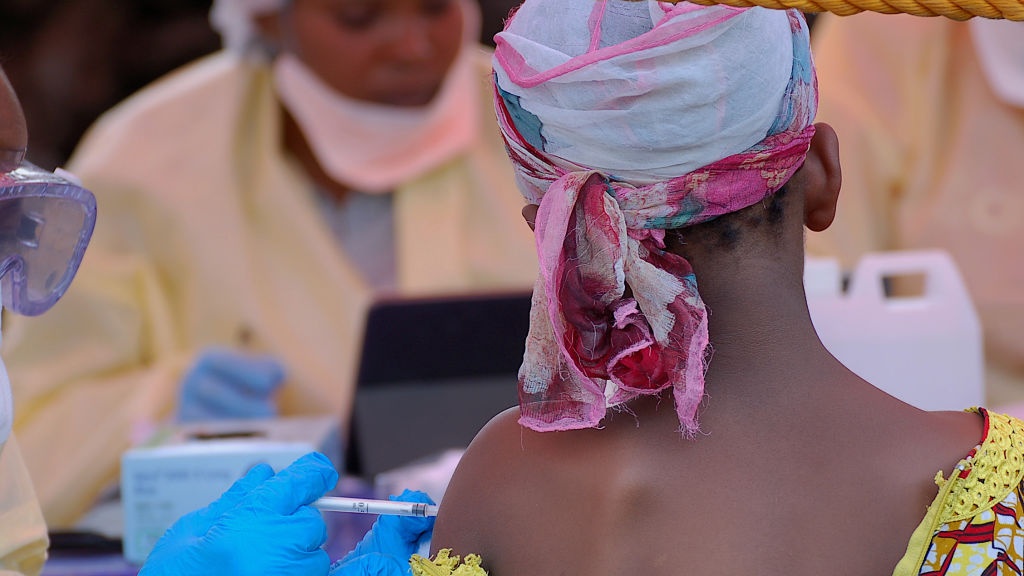Officials in the Democratic Republic of the Congo announced Monday that five people have been treated for a resurgent strand of Ebola.
Gov. Bobo Boloko Bolumbu said via public radio that the cases, where four of the five people have died, were found in the provincial capital of Mbandaka, an area which is home to 1 million Africans.
According to the Washington Post, the new outbreak in the Équateur province is the area’s 11th since the virus was first discovered in the late 1970s. Since 2017, more than 2,000 people have been killed by the virus in the Congo’s northeastern provinces.
World Health Organization (WHO) Director Dr. Tedros Adhanom Ghebreyesus tweeted in confirmation of the outbreak and also mentioned that the Congo was in the final stages of clearing out COVID-19 and the current largest epidemic of measles, which has infected nearly 300,000 Africans since early 2019.
“A new #Ebola outbreak detected in western #DRC, near Mbandaka, Équateur province. @MinSanteRDC has identified 6 cases, of which 4 people have died. The country is also in final phase of battling Ebola in eastern DRC, #COVID19 & the world’s largest measles outbreak.”
A new #Ebola outbreak detected in western #DRC, near Mbandaka, Équateur province. @MinSanteRDC has identified 6 cases, of which 4 people have died. The country is also in final phase of battling Ebola in eastern DRC, #COVID19 & the world’s largest measles outbreak.
— Tedros Adhanom Ghebreyesus (@DrTedros) June 1, 2020
The United Nations Children's Fund reported Monday that nine total cases have been observed and that a child of one of the deceased is being treated in isolation.
"Four additional people who contracted the virus — all contacts of the deceased and including the child of one of the fatal cases — are being treated in an isolation unit at the Wangata Hospital in Mbandaka," UNICEF said in a statement to CNN.
It is unclear how Ebola reemerged in parts of the Congo. The country has been placed under travel restrictions to prevent the spread of the coronavirus. More than 3,000 cases of COVID-19 have been diagnosed in the area, but due to poor medical infrastructure, testing is limited, which makes the true spread of the outbreak unclear. Officials believe the previously set travel restrictions should also help curb the spread of Ebola, per The New York Times.
Though experimental drugs have been mildly effective, there isn’t a known cure for the Ebola virus. Some symptoms of Ebola are fever and muscle pain, and The Times reports it has a 50% fatality rate. The virus is transmitted through contact with the bodily fluids of those infected or with animals. Its name is derived from the Ebola River in Congo, where it was first identified.
